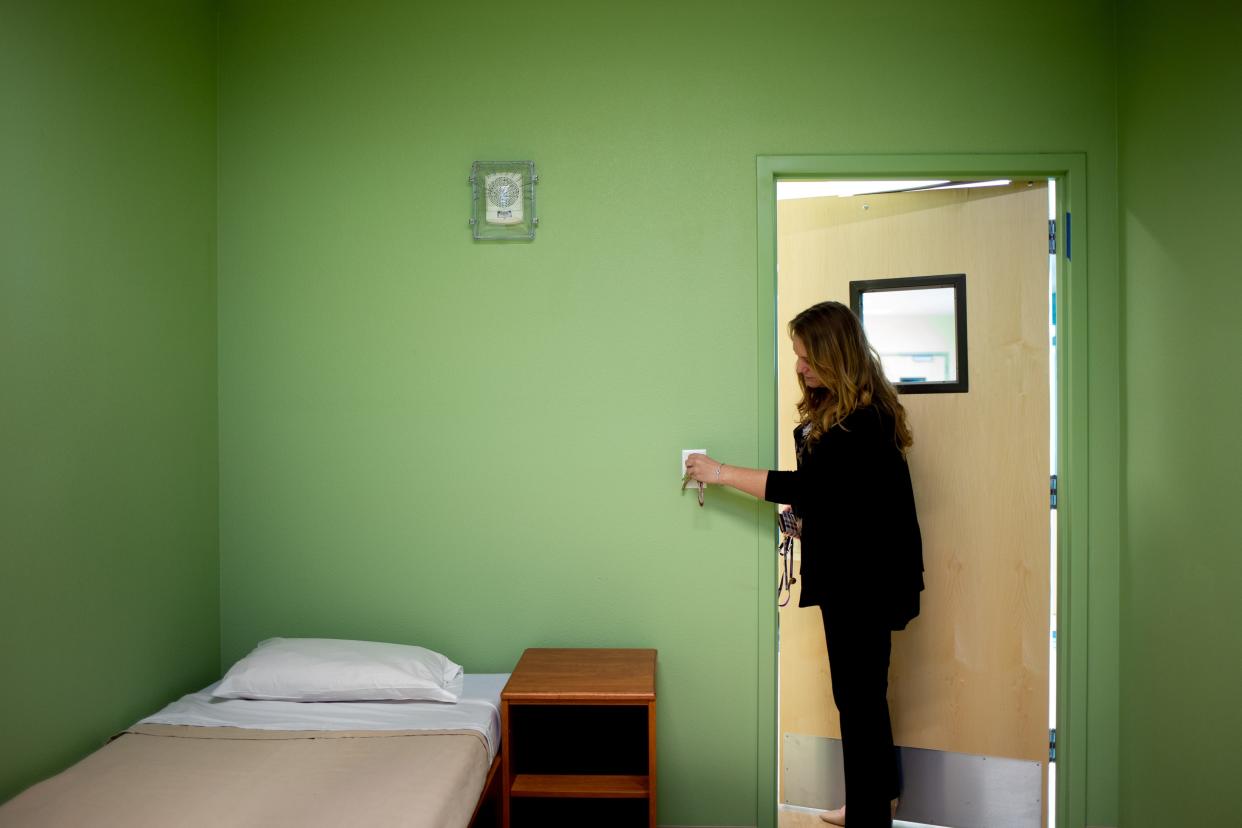Lane County awards contract for proposed mental health stabilization center in Eugene

Lane County Commissioners approved a contract Tuesday for Connections Health Services to operate the county's planned mental health stabilization center.
Proposed to be built alongside several other county-owned buildings along Martin Luther King Jr. Boulevard north of Autzen Stadium, the stabilization center would be a resource to treat people experiencing a mental health crisis, providing short-term support that could help keep people from ending up in jail or a hospital.
Connections Health already operates two crisis response centers in Arizona and those facilities were the inspiration for building a stabilization center in Lane County. Connections Health and Pima County (Tucson area) opened the first integrated model of its type in 2011, and the idea has spread to local governments around the country.
"They have experience with the model," said county Commissioner Laurie Trieger. "They have managed to stand up and fully run facilities doing exactly this work and I think benefitting from their expertise would be terrific for us here locally."
According to the federal Substance Abuse and Mental Health Services Administration, there are over 500 community behavioral health clinics nationally. In Oregon, there is a similar model under operation in Deschutes County. SAMHSA now gives recommended guidelines for their operations, which county staff said Connections Health proved they could meet, including:
Addressing mental health and substance abuse crises.
Having a 24/7 staff that includes psychiatrists or psychiatric nurse practitioners, nurses, clinicians and peers with lived experience of mental health challenges.
Treating minor physical health problems.
Screening for suicide and violence risk.
Accepting 90% of all referrals, including:
Not requiring a medical evaluation for entry.
Accepting most walk-ins and all drop-offs from first responders.
The next step for Lane County is to appeal to insurance providers to get the stabilization center covered.
"We can't bill like an emergency room for the initial evaluation in the stabilization center," Lane County Health and Human Services Director Eve Gray told the Register-Guard. "It's not yet written in the rules and allowable as a billable service."
The most important insurer to get on board is the Oregon Legislature. Lane County has estimated that 70% of the stabilization center's clients will be Medicaid customers, and officials are hoping to get the Legislature to add crisis stabilization to the insurance plan in the 2025 legislative session.
Lane County received two applications from organizations looking to offer crisis stabilization: Connections Health and Looking Glass, a Eugene nonprofit that provides a range of youth social services. Looking Glass would only provide youth stabilization, but offered to use its existing building to provide interim service while the stabilization center is being built.
Commissioners voted 3-1 to pick Connections Health instead of awarding two contracts, saying they couldn't afford to run stabilization services before it's insured.
"I don't want to bind us into a contract with providers that we know we don't have the funding for," Commissioner Heather Buch said. "I want to be more fiscally responsible than that."
The dissenting vote came from Commissioner David Loveall, who suggested commissioners award both contracts and seek community donations to Looking Glass. "I don't want to look a family in the face and let them know … six years down the road we're going to try to build a $30 million building that we don't know how we're going to pay for yet anyway," he said. "If we don't do something for the youth, in a number of years we're going to be in a really hard place."
The Deschutes County Stabilization Center is primarily grant-funded, according to the Bend Bulletin. But Gray told the Register-Guard that this facility is much smaller than the one Lane County is planning, with the capacity to treat four people at a time, compared to Lane County's planned 42.
"We decided to go this route after the smaller and lower level (and easier to fund) stabilization center did not adequately meet our community’s needs," she said.
Lane County has been targeting a 2025 opening day, but at a meeting earlier this month, Gray acknowledged it would likely take longer. "2025 is, I think, very optimistic," she said.
Alan Torres covers local government for the Register-Guard. He can be reached over email at atorres@registerguard.com or on twitter @alanfryetorres.
This article originally appeared on Register-Guard: Eugene mental health stabilization center contract awarded

